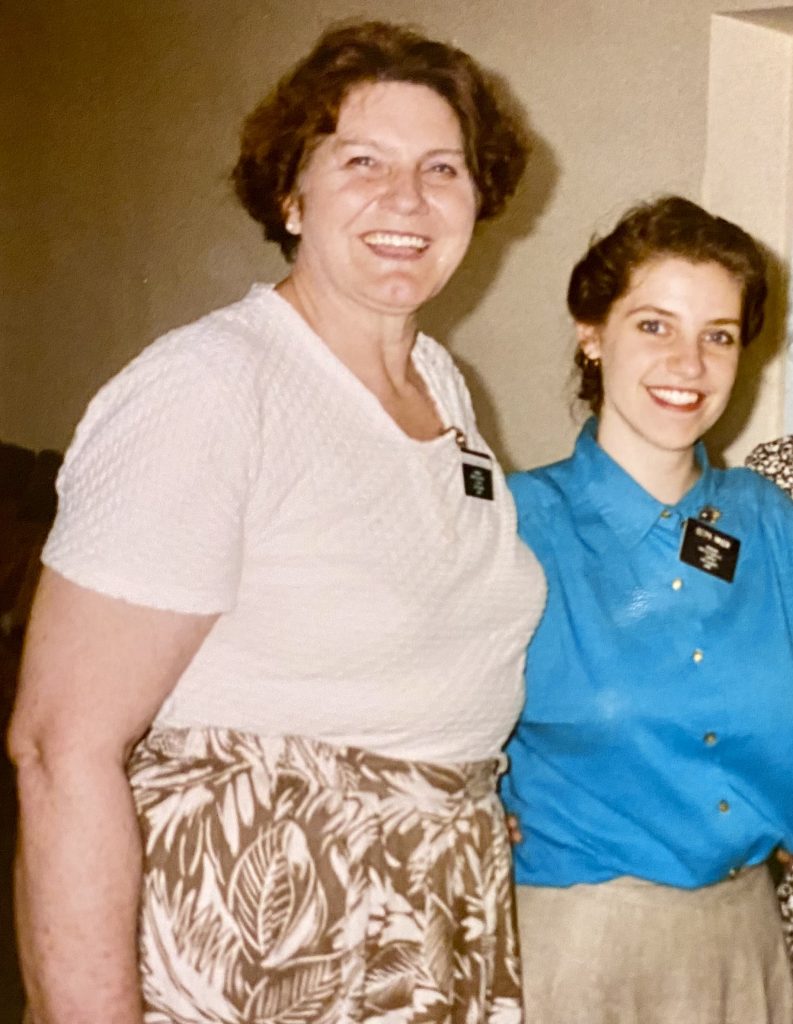I don’t experience myself as a risk taker, or as an adventure seeker. In fact, I can comfortably assure you that as the conveniently-positioned middle child (fourth of eight), I’ve happily lived my life watching others live theirs. My two older brothers and sister were constantly out doing, creating, and (oftentimes) misbehaving. My younger set of siblings (three brothers and a sister) were never not organizing activities, rallying the neighborhood, and getting into scrapes. I have always been (and still am) content with an active library card, a pile of books, and an oversized chair in which I can curl up. These days I would also add a couple of knitting projects to that pile and I’m happy happy.
When my daddy bought me my first bike (it was a beautiful red 10-speed Schwinn) I was 15 years old. We had just moved from Maryland down to North Carolina, and for the first time lived in a contained neighborhood where it was safe to ride bikes and host neighborhood block parties. Our home in Maryland was situated on a very busy stretch of highway, and my siblings and I supplied 95% of the total number of children in the neighborhood. All outdoor recreation happened in our own backyard.
My brother immediately younger than me (number 5 in our sequence of eight) also received a brand new bicycle on our move to NC. His was a dirt bike and I remember it was silver with orange lettering and had posts for his feet in case he wanted to do tricks, which he assuredly did. He ended up in the emergency room less than two weeks later after skidding across some gravel and nearly taking off his own ear in the process. But he was right back on that bike riding it off of picnic tables and whatever other surfaces that were not the ground he could find.
No table jumps for me; my bike wasn’t designed for dares. I delicately rode around the block and back home again, wishing only for a basket on my bike in which to carry a book.
Fast forward many years and I was a single mom living back in North Carolina, not ten minutes from my childhood home. Our town is littered with the most beautiful parks system of anywhere else in the world I have ever lived or traveled. They were early adopters of the nationwide Rails to Trails program, which resulted in access to more than 100 miles of greenway across the city. And all of those greenway trails have mountain bike trails leading off them for deeper exploration of the massive interconnected parks system.
A good friend suggested I get myself a bike — a mountain bike so I could experience it all! What would I possibly do with a mountain bike, I wondered out loud, while inside my head remembering my brother’s numerous trips to the ER earning him VIP status and a first-name basis with the staff. But I did it. I bought a bike and it was gorgeous — powder teal, 15 gears, hybrid tires, and the best shocks of the season. I also bought a bike rack to fit on the trunk of my Kia Optima and loaded myself up for the scariest and most thrilling adventures of my life.
I became a regular at Country Park, where I rode the trails not visible from the greenway. I thrilled at the speed I could attain on the downhill runs. I was terrified jumping fallen logs. And I was always nervous crossing the narrow bridges. But I rode and never ended up in the ER, and kept my teeth intact, and proudly displayed all my bruises from the inevitable and innumerable wrecks and falls I had. That seemingly random piece of advice to buy a bike turned into something I’m still proud to talk about to this day. Years later I had to sell that beautiful bike to its next caretaker on my way to Santa Monica, where I bought my dream bike with a basket for all my books.

